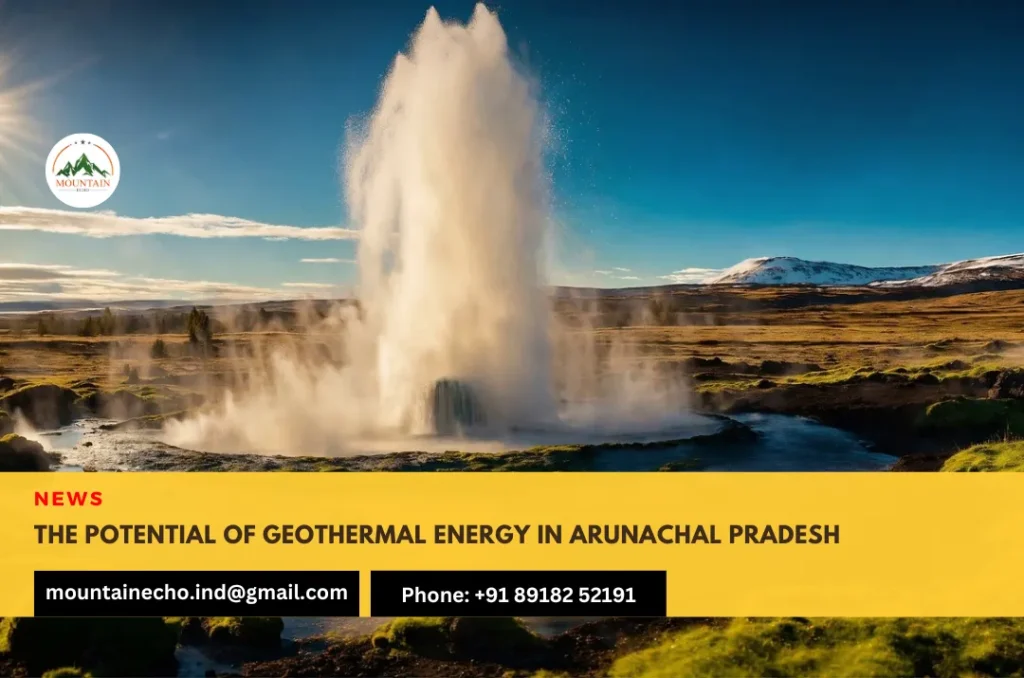The potential of Geothermal Energy in Arunachal Pradesh
Geothermal energy holds immense promise as a renewable and sustainable source of power. The Centre for Earth Sciences & Himalayan Studies (CES&HS), in collaboration with the Norwegian Geotechnical Institute (NGI) and Geotropy, recently conducted investigation studies aimed at harnessing geothermal energy in various regions of Arunachal Pradesh.
In September 2023, CES&HS and NGI signed a Memorandum of Understanding (MoU) to collaborate on identifying and quantifying the geothermal potential in Arunachal Pradesh. This trilateral cooperation involving India, Norway, and Iceland aims to explore the utilization of geothermal energy for various applications, including cold storage, agricultural drying, heating and cooling of buildings, water tourism, and green energy production.
From 18th to 24th March, CES&HS, NGI, and Geotropy conducted extensive field investigations in Dirang, Mago, Thingbu, and Grenkhar. Despite challenges posed by heavy snowfall in certain areas, significant potential was discovered in Mago village, situated at an elevation of 3,614.58 meters.
Notably, residents of Mago village already utilize geothermal heat for various household purposes, showcasing the existing natural resource utilization in the region.
Dr. Vijay Chauhan, CEO of Geotropy, emphasized the vast potential of geothermal energy in Arunachal Pradesh. He highlighted the importance of factors such as fluid-rock interaction and structural geological conditions in determining the feasibility of geothermal projects.
Dr. Rajinder Bhasin from NGI referenced the successful pilot project in Chumathang village, Ladakh, where geothermal energy was effectively harnessed for space heating. This project serves as a positive precedent for similar initiatives in the Himalayan region.
Former Union Science & Technology Department Head, Dr. Bhoop Singh, expressed optimism regarding the planned pilot geothermal demonstration project in Arunachal Pradesh. He emphasized its potential to unlock untapped renewable energy sources and contribute to sustainable development in the state.
The project is not without its challenges. Further studies are needed to determine the exact potential of each geothermal site and develop the necessary infrastructure for large-scale utilization. However, the initial findings are encouraging and offer a glimpse into a future powered by the Earth’s natural heat.
The trilateral cooperation between India, Norway, and Iceland represents a significant step towards harnessing the vast geothermal potential of Arunachal Pradesh. Through innovative projects and partnerships, the region can pave the way for sustainable development and become a model for clean energy initiatives in mountainous regions.



